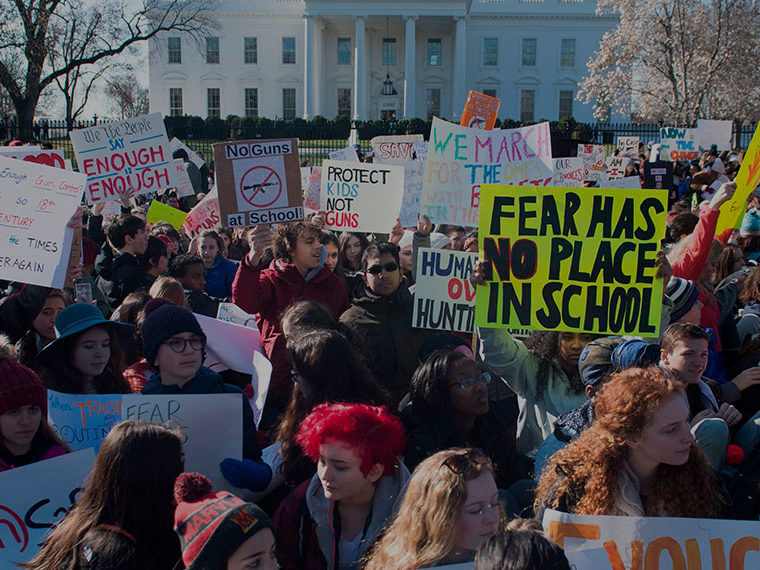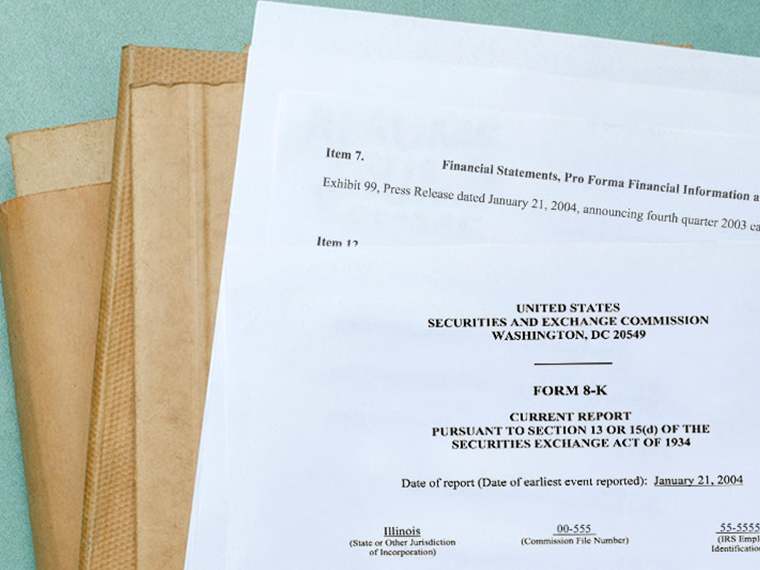An experiment seeks to isolate motivation and raises concerns for outspoken corporate leaders
NBA star and Nike pitchman Michael Jordan perhaps best summed up why business people should steer clear of politics, famously declining a public endorsement in a racially charged 1990 North Carolina Senate race: “Republicans buy sneakers, too.”
In the years since, however, political nonengagement has given way to episodes of business leaders publicly embracing political stands. North Carolina was in the spotlight again in 2017 when robust corporate backlash to legislation that discriminated against transgender people led to the new law’s quick repeal. More recently, chief executive officers of large or high-profile companies have taken public positions on same-sex marriage, LGBTQ+ rights, Black Lives Matter and gun rights.
In a 2022 paper published in Strategic Management Journal, University of Virginia’s Young Hou and UCLA Anderson’s Christopher Poliquin documented a business cost to CEO activists who had publicly called out Congress to address gun violence in the wake of August 2019 mass shootings that killed 32 people.
Opt In to the Review Monthly Email Update.
Among CEOs supporting gun rights reform whose companies had physical retail outlets, consumer visits to stores in Republican counties dropped more than in other counties for four weeks (and then rebounded), suggesting a short-lived boycotting based on CEO activism. Other research has documented “buycotting” when consumers show support of CEO activism by buying more of their stuff.
Hou and Poliquin are back with a working paper that focuses on the motivation driving a consumer’s response when a CEO publicly wades into the political waters?
A desire to virtue signal, no matter how subconsciously, has never been more available, thanks to social media. Or, a reaction to CEO activism might be driven by a simple desire to punish (boycott) or reward (buycott) as a reflection of one’s beliefs.
Boycotting in Private
Hou and Poliquin set up an experiment in which some participants are told their response to a CEO advocating for gun rights will be private, and other participants are told their response will be public. If signaling were the driving force in consumer choice, it would have likely resulted in a measurable difference in responses among the public and private sleeves of this test.
It didn’t.
Hou and Poliquin found that among participants who favor stricter gun control, demand indeed dropped when they learned the CEO had taken a public position supporting gun rights. Yet there was not a significant difference among participants whose position was observable to others (public) compared with those whose choice would remain private.
“Personal ideology is a sufficient motive for consumers to adjust their purchases,” the authors write.
While much attention is focused on the observable social media virality of consumer activism — and the extent to which that impacts business — the results of this experiment suggest C-suites taking political positions might need to consider fallout from less visible forces. Hou and Poliquin assert that their result “implies that activism can prompt boycotts even of products whose consumption is private.”
Coffee With a Side Order of Gun Rights
Hou and Poliquin set up a fictitious company, Bean Brigade, that purported to sell high-end coffee online. They then recruited nearly 2,000 participants on the online Prolific experiment platform. Participants were required to sign on as a team with someone they chose to potentially involve in the experiment. More than 60% of the participants chose a spouse or partner.
In the “nonactivism” control group, participants read a basic marketing pitch from Bean Brigade.
Bean Brigade is a premium coffee company committed to sourcing the finest beans and roasting them to perfection. Whether you prefer light and fruity blends, bold roasts or decaf, Bean Brigade offers a premium coffee for you.
Participants in the “activism” group saw that message and were also fed a social media post they were told came from Bean Brigade’s CEO that pushed for gun rights.

All participants were then given the choice of winning a free 12-ounce bag of Bean Brigade coffee — an implicit endorsement of the brand — or taking their chances on winning a cash payout that ranged from $0.25 to $4.
To tease out whether signaling was a driving motivator, some participants were told their choice would be shared with their partner, while others were told their decision would remain private.
Participants were also asked to weigh in on whether they think U.S. gun policy should be stricter, less strict or is about right as is. Across all four groups (private/public control groups and private/public activist groups) at least two-thirds of participants favored stricter policy.
When presented with the social media posting from the CEO, participants who favor less strict gun policy were more likely to choose the coffee option over the payment option, compared with participants in favor of stricter policy.
But in those two groupings there is very little difference in choice among those who are told their choice will be private and those who are told their choice will be public. That finding effectively makes a case for personal ideology being no less a factor than signaling in driving political consumerism.
While high-profile CEO activism gets plenty of media attention (see: Coca-Cola’s stance on Georgia’s voting law, Chick-fil-A on gay marriage and Disney on LGBTQ+ rights) the researchers suggest their findings imply that lower-profile firms producing “less conspicuous products” can also trigger fallout from CEO activism, given the fact that consumers’ personal ideology seems to be a motivating factor.
Moreover, Hou and Poliquin contend that an activist CEO who triggers negative consumer activism rooted in personal ideology may need to change actual business practices to reverse the consequences of their position taking. That’s a potentially bigger lift than having to react to negative fallout that is a function of signaling. Past research suggests a fresh marketing push might be all that’s needed to undo signaling damage.
Featured Faculty
-
Christopher Poliquin
Assistant Professor of Strategy
About the Research
Hou, Y., Poliquin, C. (2024). Political Consumerism: Ideology of Signaling? Available at SSRN 4718887.






